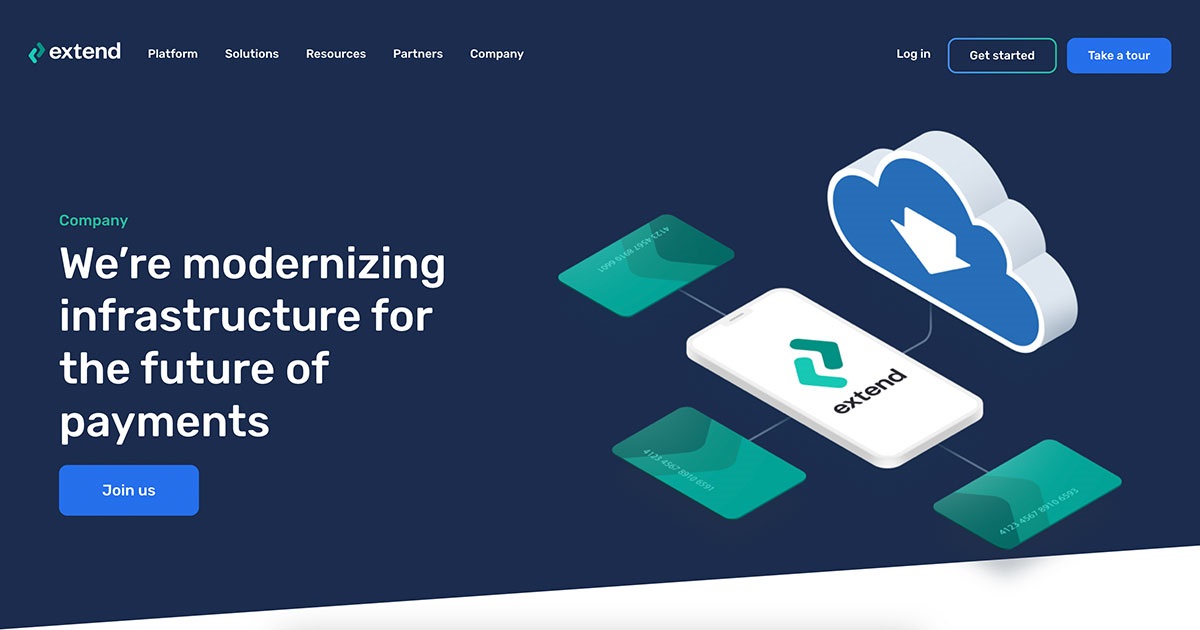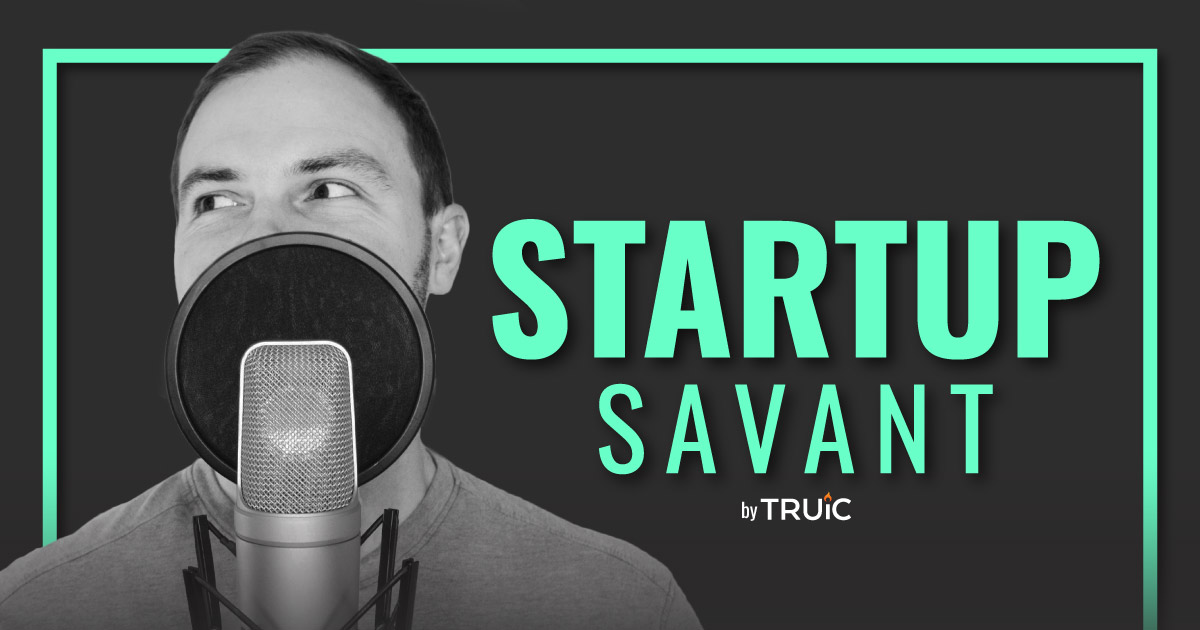Extend Profile

Last Updated: By TRUiC Team
Extend is a fintech startup that allows companies to better manage their corporate spending through virtual credit cards.
Interview With Andrew Jamison
Describe your product or service & the problem it's solving:
“Extend at its simplest form is trying to turn every day commercial credit cards, and I say commercial because we're in the B2B space, not in the consumer space yet, into really a spend management vehicle.
What does that mean? Simply put, we're just trying to superpower the existing card that people have in their wallets, [enabling] people to have more control over how it's used [and] how potentially it can be distributed from that very physical card.”
What problem is your company solving?
“What we're doing here is putting an experience that's right sized for the types of businesses and for the types of people who just want a simple experience through which they can do all of these things. And unfortunately, we have a lot of sophistication in consumer [industries]. We have some sophistication in enterprise. But like children, the middle child kind of got starved and they're stuck between the two. And that's where we're bridging the gap, right?”
How did you come up with and validate your startup idea? Tell us the story!
“I started looking into the marketplace of what had happened. What was transpiring and what you saw companies like Brex coming up, you saw companies like Marqeta coming up and the relevance of that is Marqeta on this idea of these new businesses that are doing BNPL or they're doing right food deliveries.They essentially needed access to APIs and they needed something they could set up quickly. And so there was a whole ecosystem that was being built around that.
Then the second part was this old middle child, right, middle market, middle child, the heartbeat of really the American economy. Had clearly articulated that they needed different solutions because you started seeing the Brex’s come along, the Divvy’s come along, and since then, there's been a plethora of these players come along. And I realized there was clearly a gap in the market for a solution that sort of captured your spend and reconciliation and expense management and how you managed your employees and their capacity to spend. And so those two things for me with the catalyst saying, okay, so I wanna build. There is a real opportunity there.”
Was there a catalyst that solidified your decision to become an entrepreneur?
“It was a bit of a life changing one for me personally. But I think, you know, you go back, you talk about the cushy job. Look, I think a lot of corporate jobs are pretty easy in that there's no stress because some bigger company is like paying your salary and if you're decently competent, right, you're going nowhere. And so, yeah, it's really the bigger the company, right, the more you have to be flexible and adapt to politics, because politics is part of the game. And if you're not happy to play the game, then you're in the wrong type of environment. And it took me leaving to really understand, right?
In today's world, we rarely give ourselves time. And time is such a positive thing. It's why kids are so creative, is they have time. And we deny ourselves time as we get older. We fill it with lots of things, and we sort of never stop to think.
Because whether it's Amex or another big blue chip company, I was still gonna be involved in more of the politics and the paper shuffling and all those pieces, which again, it wasn't really where I saw myself. And you can say, well, clearly you're not a good general manager. I was like, no, what my passion was, was actually to get out there and solve hairy problems, building things and solving, solving for those challenges.”
Feeling inspired? Learn how to launch your company with our guide on how to start a startup.
What advice do you have for someone who has an idea and wants to start their own business?
“The number one thing I would say is an idea is worth nothing. I learned that the hard way. You can go around and pitch things, and unless you can actually get to a place where you can get rubber to meet the road, because you partner up with someone else who has the experience, who buys in on what you're doing, and get some form of a prototype out there, and get some degree of buying signals from the people you're going to be selling to…is really mission critical because it's too easy to get carried away in your own little world.”
Are there any effective general strategies or actions that can be universally applied when starting a company?
“I think for me, the most important feedback is cover your bases. And what do I mean by that? The temptation, I think, often when you start a company is you're going to do it with somebody who's like-minded.”
What is your #1 piece of advice for startup founders?
“I think the most important thing is to be honest with yourself.
If it's uncomfortable you're learning and if you're learning you're probably doing something interesting.”
Tell Us Your Startup Story
Are you a startup founder and want to share your entrepreneurial journey with our readers? Click below to contact us today!
More on Extend

From Corporate Employee to Managing Corporate Spending
Extend's goal is to make business spend management simple. This is their origin story.

Defying the Corporate Comfort Zone: Andrew Jamison of Extend
Andrew Jamison, co-founder and CEO of Extend, joins the podcast to discuss leaving the corporate world to pursue entrepreneurship.






